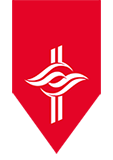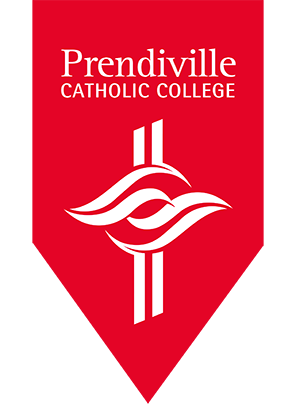Physical Education

Physical Education
Year 12
Open the panels below for further details.
Physical Education (ATAR)
An understanding of the Year 11 content is assumed knowledge for students in Year 12. It is recommended that students studying Unit 3 and Unit 4 have completed Unit 1 and Unit 2.
Study of the Physical Education Studies ATAR course contributes to the development of the whole person. It promotes the physical, social and emotional growth of students. Throughout the course, emphasis is placed on understanding and improving performance in physical activities. The integration of theory and practice is central to studies in this course.
The Physical Education Studies ATAR course focuses on the complex interrelationships between motor learning and psychological, biomechanical and physiological factors that influence individual and team performance. Students engage as performers, leaders, coaches, analysts and planners of physical activity. Physical activity serves both as a source of content and data and as a medium for learning. Learning in the Physical Education Studies ATAR course cannot be separated from active participation in physical activities, and involves students in closely integrated written, oral and physical learning experiences, based upon the study of selected physical activities.
The course appeals to students with varying backgrounds, physical activity knowledge and dispositions. Students analyse the performance of themselves and others, apply theoretical principles and plan programs to enhance performance. Physical activity and sport are used to develop skills and performance along with an understanding of physiological, anatomical, psychological, biomechanical and skill learning applications.
The course prepares students for a variety of post-school pathways, including immediate employment or tertiary studies. It provides students with an increasingly diverse range of employment opportunities in the sport, leisure and recreation industries, education, sport development, youth work, and health and medical fields linked to physical activity and sport. The course also equips students to take on volunteer and leadership roles in community activities.
The Year 12 syllabus is divided into two units, which are delivered as a pair. The notional time for the pair of units is 110 class contact hours.
Assessment Weighting:
- 70% Theory – School Based (50%) and External (50%)
- 30% Practical – School Based (50%) and External (50%)
- School Based Practical Assessment – Touch Football
External Practical Examination – Students select from:
|
|
|
Physical Education (General)
An understanding of the Year 11 content is assumed knowledge for students in Year 12. It is recommended that students studying Unit 3 and Unit 4 have completed Unit 1 and Unit 2.
The Physical Education Studies General course contributes to the development of the whole person. It promotes the physical, social and emotional growth of students. Throughout the course, emphasis is placed on understanding and improving performance in physical activities. The integration of theory and practice is central to studies in this course.
The Physical Education Studies General course focuses on the complex interrelationships between motor learning and psychological, biomechanical and physiological factors that influence individual and team performance. Students engage as performers, leaders, coaches, analysts and planners of physical activity. Physical activity serves both as a source of content and data and as a medium for learning. Learning in the Physical Education Studies General course cannot be separated from active participation in physical activities and involves students in closely integrated written, oral and physical learning experiences based upon the study of selected physical activities.
The course appeals to students, with varying backgrounds, physical activity knowledge and dispositions. Students analyse the performance of themselves and others, apply theoretical principles and plan programs to enhance performance. Physical activity and sport are used to develop skills and performance, along with an understanding of physiological, anatomical, psychological, biomechanical and skill learning applications.
The course prepares students for a variety of post‐school pathways, including immediate employment or tertiary studies. It provides students with an increasingly diverse range of employment opportunities in the sport, leisure and recreation industries, education, sport development, youth work and health and medical fields linked to physical activity and sport. The course also equips students to take on volunteer and leadership roles in community activities.
Course Content:
- Developing physical skills and tactics
- Motor learning and coaching
- Functional anatomy
- Biomechanics
- Exercise physiology
- Sport psychology
Assessment Weighting:
- Practical (50%)
- Investigation (15%)
- Response (20%)
- Externally Set Task (15%)
Externally Set Task: All students enrolled in the Physical Education Studies General Year 12 Course will complete the externally set task developed by the Authority. Schools are required to administer this task in Term 2 at a time prescribed by the Authority.
Prerequisites: Achievement of a C Grade in Year 11 Physical Education Studies General Course Unit 1 & 2.
Certificate III Sport Aquatics & Recreation
To be completed in one year.
This qualification is a continuation of the Certificate II in Sport and Recreation studied in Year 11. It reflects the role of individuals who apply the skills and knowledge to be competent in delivering a basic instruction session for a sport. Work may be undertaken as part of a team and would be performed under supervision or independently in a structured environment such as a sporting club or school.
Prerequisites: Students will need to complete the Certificate II in Sport & Recreation in Year 11. Some of the units below will be completed as part of the Year 11 Certificate course and students will be given transfer credits towards the completion of the Certificate III in Sport Aquatics & Recreation in Year 12. Students should possess reasonable swimming ability. This qualification requires a substantial amount of theory work, due to the expectations to be qualified and employable at this level.
Topics Covered:
First Aid
Social Media in Sports & Recreation
Sports Coaching
Facilitate Sport Groups
Sports Travel & Accomodation
Auspicing: Our College has an auspicing arrangement with IVET for this qualification, students will be enrolled with this Registered Training Organisation (RTO). All students will be inducted into RTO requirements at the beginning of the year and will require a USI number before commencing the course.
Pathways Information: This qualification could lead onto further TAFE study in Certificate IV in Sport & Recreation and/or Sports Development. Various sport and recreation jobs could also be sought within the industry, e.g. gyms, community centres, sporting organizations etc.
Employability Skills: Employability skills required by the Sport and Recreation industry for this qualification include: communication, initiative and enterprise, learning, planning and organising, problem-solving, self-management, teamwork and technology.
Course Fee: A student choosing to complete this qualification at Prendiville Catholic College will be charged a subject levy which absorbs the delivery costs of completing the qualification from the RTO (Registered Training Organisation). A subject levy plus activity fees (approx. $450) per student will be incurred.


